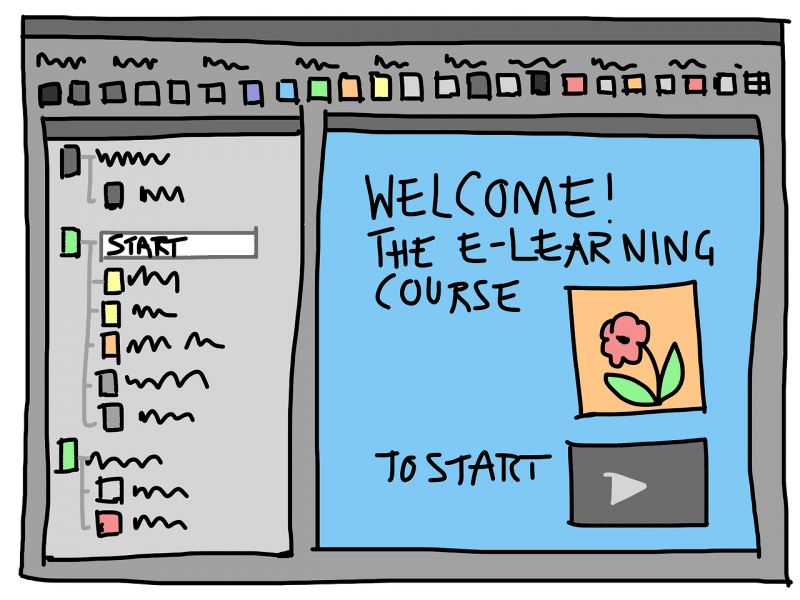How To Staff A K12 Online Course
Teaching in an online learning environment requires a skill set most traditional teachers do not currently posses. Online administrators and interviewing online instructors should consider highly qualified educators who demonstrate a thorough understanding of online teaching and learning. It is important K12 educational institutions select appropriate online instructors who possess the competencies proven necessary to be successful online facilitators.
4 Key Roles Instructors Must Master To Teach A K12 Online Course
Berge (2008) discussed four key competency roles an instructor should effectively demonstrate while teaching online: Social role, technical role, managerial role, and pedagogical role.
- Social Role.
Instructors must be able to create a learning environment which supports social interactions and encourages group collaboration between learners and between the instructors. Theoretical opinions about social learning draw from socio-cultural and socio-constructivist approaches to learning. These learning methods emphasize a student’s participation in collaborative activities. Therefore, it is important for administrators to consider the instructors’ philosophies about social roles online. - Technical Role.
As online education grows so does the technology that can be used to support learning. The online facilitator must create a learning environment where learners feel comfortable to navigate the space and use the technology resources required for online learning. One of the main goals of online learning is for the technology and instruction to flow seamlessly together. - Managerial Role.
It is important that the learner have a clear understanding of any time commitments and learning expectations before starting an online learning program. Organization of student responsibilities, learning expectations, and student performance outcomes are necessary to ensure the institution and instructor’s course expectations are clearly communicated to all students. With online teaching, managing the interactions within the learning environment will be challenging and a required skill for any potential online instructor. - Pedagogical Role.
The most important role of online instructors centers around their responsibilities and philosophies of online learning. The instructor must practice research-based teaching strategies and embed those activities within the online learning experience. Instructors should use a high frequency and level of questioning to probe for student understanding and include student discussions on critical concepts and skills. Ultimately, the main role of the instructor is to model effective learning and create a learning environment which supports social interaction while providing learning expectations and technical support necessary for students to learn.
3 Common Misconceptions About Teaching A K12 Online Course
Technology and the internet will continue to transform learning in a positive way and it will be imperative that online learning environments be staffed with excellent instructors trained to teach online learning courses. There can be misleading ideas and thoughts surrounding the successful staffing of an online learning environment. These misconceptions must be identified and clarified before successfully developing the staffing process and identifying the most well prepared instructors.
- Online learning environments do not need instructional leadership support.
On the contrary, online learning environments need administrators who will provide instructors with a clear and communicated vision for teaching and learning, ensure supporting resources are available, and coordinate appropriate technical infrastructures to support a successful teaching and learning environment. Additionally, online administrators must serve as advocates ensuring that the curriculum, finances, and technical supports required to sustain such a learning environment are as important as traditional learning resources and agendas. Although traditional classroom teachers have content and curriculum knowledge, strong communication skills, technology experience, and a passion for learning is often not enough to be successful in the online teaching world. - Any classroom teacher is qualified to teach online.
Online learning requires specific and unique pedagogy, curriculum structure, and communication, which necessitate professional development and best practices beyond the traditional classroom teacher expertise. - Existing online learning personnel can support the needs of other school related services.
This misconception is particularly damaging to the success and effectiveness of a new online program. Online learning requires a transition away from traditional educator roles to include roles and responsibilities unique to the online learning environment. Online learning employees should have experience as online learners or facilitators and an educational background to meet the unique online learning environment.
Conclusion
Knowledge and understanding is the key to successfully overcoming the challenges to effectively staffing a K12 online course. Additionally, the success and positive accomplishments of potential online instructors leading to student growth is important in the process of staffing online learning environments. Berge (2008) provided four key instructor competencies, rooted in theory and research, proven to be successful instructor roles for teaching and learning online. The most important roles and responsibilities for an instructor online is the importance an instructor places on social interactions, communicating student expectations, and technical support and learning flexibility among its use. These competencies are theory based, but also stimulate these relationships of pedagogy and responsibility by potential online instructors. A depth of knowledge construction requires overall pedagogy centered on best practices teaching and learning online such with: Providing clear course requirements, prompt communication, and modeling student performance expectations. A successful and student centered learning program can be developed by focusing on these four competencies and understanding the misconceptions behind successfully staffing a K12 online course.








